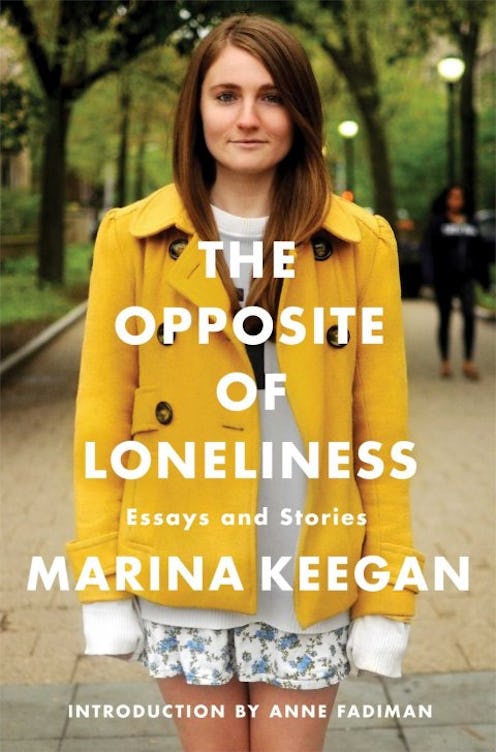Books
The Most Tragic Book You'll Read This Year

The Opposite of Loneliness is the first, and unfortunately the last, book by Marina Keegan, a promising young writer who was killed in a car accident five days after graduating from Yale in 2012. This book, named after the essay Keegan wrote for the Yale student paper that went viral after her death, consists of the short stories and essays Keegan left behind. In the introduction, Keegan's faculty adviser Anne Fadiman writes, "Marina wouldn't want to be remembered because she's dead. She would want to be remembered because she's good." And reading her work, it is clear that she's very good, and could have been great someday.
Reading a book by an author who died so young is a strange experience. Any mention of death is immediately arresting. Any mention of possibility or the future is powerfully sad. Marina Keegan assumed she would have time, that she was only at the beginning of her life and of her career. And it is somewhat tragic to read her work, which is already very good, and know that she would have gotten better. The writer in these pages still hasn't quite honed her voice or her craft just yet. Almost, but not quite. And it's enough to break your heart.
Yet if we are to evaluate Keegan based on her work rather than her tragically short life story, the book is still well worth a read.
Her fiction is insightful, and occasionally experimental. The subjects range from an American contractor in Iraq to an old woman who reads for the blind while nude, but many are also about young people – kids Keegan's age falling in and out of love, coping with loss, coping with their families. These stories are both the strongest and the weakest at the same time – the topics and themes aren't new, but Keegan is perhaps best at getting into the heads of these characters, and her insight and and compassion are on full display here.
But it is the essays that are probably strongest, even though some are only a few pages long. Perhaps most striking is the title story, "The Opposite of Loneliness," but it's by no means the only fascinating example. Her essay on whales is haunting, and opens with the attention grabbing line, "When the moon gets bored, it kills whales." The piece about her car is both meaningful and occasionally hilarious. Her investigation into why fully 25 percent of Yale grads go into consulting fields each year feels slightly unfinished but raises so many interesting questions it almost doesn't matter.
This book probably would not have been published if Keegan were still alive – the writing is just shy of what you would expect from a published author, though still very good. But in an odd way, it's a bit like its own coming of age story. In its pages, we get a glimpse of a young woman who is growing as a writer and a person, someone who's thinking deeply about love and the world around her and the scale of the universe. At the end of a brief essay on the inevitable end of the world, she writes, "millions of years is a long time and I don't want to let the universe down."
Marina Keegan never got to be the writer she could be, but we here have a glimpse of what could have been. I have no doubt she would have been great. In ten years, we probably would have been raving about her latest work, hailing her as bold new literary voice. In The Opposite of Loneliness we get our only look at what might have been one of our favorite authors one day.
And yet somehow, even at the age of 22, Marina Keegan manages to be very, very good.
Image: Simon & Schuster